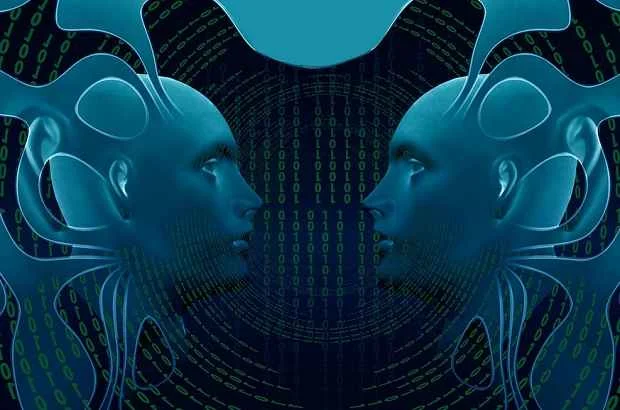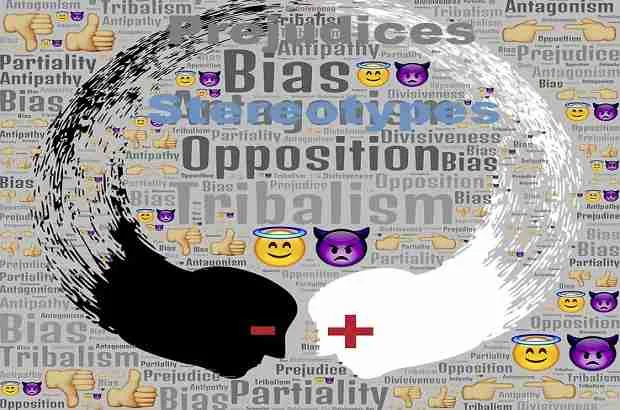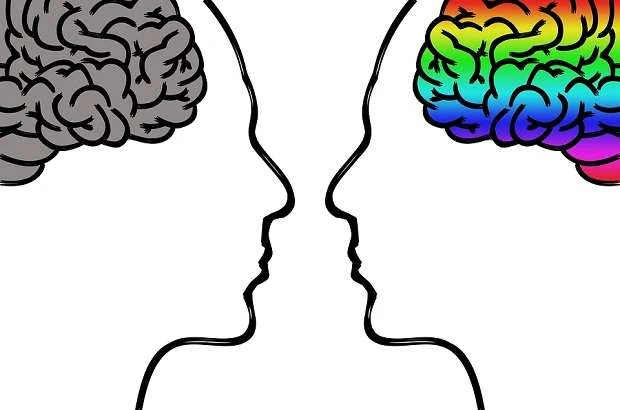Stereotypes and prejudices are biases that work together to create and sustain social inequality.
A prejudice is an opinion which refers to attitudes and feelings - whether positive or negative and whether conscious or unconscious - towards that person or people in other groups.
A stereotype is thought or an over-generalized belief about a person or group of people. For example, a stereotype can be an expectation about the individual or group's personality, ability or preferences.
Techniques used to reduce prejudice and eradicate stereotyping include: obtaining public support and awareness of anti-prejudice social norms, promulgating laws and regulations that require fair and equal treatment for all categories of people and educating people about inconsistencies in their beliefs.
A prejudice is an opinion which refers to attitudes and feelings - whether positive or negative and whether conscious or unconscious - towards that person or people in other groups.
A stereotype is thought or an over-generalized belief about a person or group of people. For example, a stereotype can be an expectation about the individual or group's personality, ability or preferences.
Techniques used to reduce prejudice and eradicate stereotyping include: obtaining public support and awareness of anti-prejudice social norms, promulgating laws and regulations that require fair and equal treatment for all categories of people and educating people about inconsistencies in their beliefs.
 |
| Stereotypes, prejudices, and discrimination in psychology |
Stereotypes, Prejudices, and Discrimination in Social Psychology
There is nothing stronger than human prejudice
Human prejudice or racial discrimination is a disease that does not affect the skin but affects the human mind. Thus, solutions to human prejudices or racial discrimination can be different from one to other and other manifestations of inequality have to face the first and most important mental delusion, which have created false concepts, from thousands of years of excellence, one gender over each other.
On the root of this racial intolerance, mankind has a misconception that is essentially made up of different races and many layers, and that these different human groups have different mental, ethical and physical competencies that require different types of dealing.
In fact, there is only one human race. We are one people living on one planet: we are a human family linked to a shared destiny and are bound to be "one soul."
On the root of this racial intolerance, mankind has a misconception that is essentially made up of different races and many layers, and that these different human groups have different mental, ethical and physical competencies that require different types of dealing.
In fact, there is only one human race. We are one people living on one planet: we are a human family linked to a shared destiny and are bound to be "one soul."
Stereotypes, Prejudices, and Discrimination
We all know the meaning of racism and I do not think that there are those who did not face racist speech in the real or virtual world on the sites of communication, but perhaps also dear readers speak racist words either consciously or subconsciously you call the facts and experiences of your racist words.
A better understanding of racism must understand some of the concepts that are the origin of it, and racism is just one example of several discriminatory models that we will recognize.
If we want to analyze racist behavior, we will turn it back to the stereotypes that a person imagines in a group. We often draw stereotypes from our own experiences.
Stereotypes
If I tell you that I was watching the dance of professional dance girl yesterday, you would imagine a woman in belly dancing shaking her waist, but I do not mean an oriental dancer, I mean an offer of a ballet girl.
So what you imagined was the result of the stereotypical image that you imagined in your mind based on the eastern community you live in. If you say the same thing to a Spanish person, you would not imagine an Oriental dancer or even imagine a flamenco dancer.
So stereotypes are woven in our minds based on our personal experiences, sometimes positive and sometimes negative, but in both cases, it is not true, because it circulates facts that may not apply to everyone.
So stereotypes are woven in our minds based on our personal experiences, sometimes positive and sometimes negative, but in both cases, it is not true, because it circulates facts that may not apply to everyone.
Prejudices
Based on stereotypes, a person may be prejudiced against another person and predetermined by relying on the stereotypes that he has woven into his mind, without relying on any logic or facts.
You may be suspicious that you know that you are a "stereotypical" person and will expect you to be deceptive even before you deal with you, or you may be expected to be generous because you belong to the country of generosity as a stereotype without showing any sign of Whether you are gracious or not.
You may be suspicious that you know that you are a "stereotypical" person and will expect you to be deceptive even before you deal with you, or you may be expected to be generous because you belong to the country of generosity as a stereotype without showing any sign of Whether you are gracious or not.
Discrimination
Discrimination is biased behavior, a treatment of the other based on belonging to a group of people against whom the person concerned bears stereotypical images, which takes several forms, for example; linguistic discrimination, religious discrimination, racism, classism, nationalism, sexism, etc.
What are the causes of prejudices in humans?
We can understand some of the reasons for bias among some, who do
so - perhaps unaware of what they are doing - what they are actually protecting
and defending themselves. Therefore, their position is harsh and sometimes
unjust.
If a biased person possesses a violent authoritarian character who does not believe in human and civilized principles that respect the rights and fair presentation of others in society, his or her occurrence in a misunderstanding that brings injustice to the self and the injustice of others becomes an impediment to it.
If a biased person possesses a violent authoritarian character who does not believe in human and civilized principles that respect the rights and fair presentation of others in society, his or her occurrence in a misunderstanding that brings injustice to the self and the injustice of others becomes an impediment to it.
Because of psychological and mental interference in the behavior of bias, he is often taught in community psychology and cognitive science. Psychologists have divided intellectual prejudice into sections, including prejudice to self-service, and to promote self-confidence. This type of person who aspires manic to succeed regardless of personal data; for example, a person suffering from this bias can make success because of his personality only, and makes failure due to external factors.
There is another type that presents ambiguous information in a way that serves its interests and misleads them around it. Another type of intellectual bias is a bias toward the group, a person's bias towards a group because of its belonging to it, and there is an affirmative bias; here a person searches for certain information and leaves any other information to prove a belief in his mind.
Thus, he has misinformed and misrepresented the information as the only true truth. Another kind of intellectual bias is the bias of the familiar; here the person fights to keep everything around him the same. For example, cultural, economic, political or social change cannot be accepted for fear of its interests and lack of full confidence in its success with the new situation.
There is a kind of bias that is biased to the available; here the big bias is going to happen something because of the availability of much information about it and not the logical probability of occurrence. For example, some people expect an accident or change or some punishment to accept some behavior and reject others based on these unrealistic ideas.
Intellectual prejudice is described as comprehensive of inter-related types of biases, as well as its connection with mental and psychological factors that make it more complex to deal with than others because of the resistance of its authors to change because they see their ideas completely true or sacred, especially when linked to ideological data.
Intellectual bias is an error in judgment resulting from memory, socialization, learning, or mental perceptions. It has been noted that many people fall into this type of bias, regardless of their level of education. It is easier for some to say, for example, the "Magical country Magen", to understand this country and know the details of cultural and social data.
Intimidation and intimidation are the easiest way to stay safe because this method prevents people from comparing their material and what they practice and believe in a realistic way with others.
Therefore, they remain in the vicinity of their available information. They do not understand: Is it really useful and glorious for a better life or is it fear and discouragement?
 |
| Stereotypes, prejudices, and discrimination in psychology |
Why are people biased more than they can perceive the facts?
Most people think they are rational creatures capable of making objective decisions, but what prevents them from this is the prejudices, biases or emotions that are deducted from this thing, where they are stronger than we think.
Prejudice is what controls our choices, but not because it is irrational, but because it is very rational and logical according to the law of your brain, and what you deposited in it, according to your own logic, and this is revealed by a modern scientific experiment.
Experience has shown that humans have an excellent ability to ignore facts that are not commensurate with their biases. Not only is Facebook, where bets are low or low, but also issues that can cost us as a preemptive experience becomes stronger than adventure.
Humans are biased by their nature
Humans are biased towards a less resistant path, that is, they tend to be safer, although this can later depress them during the flight. In such cases, people do not seem to be able to imagine future consequences, because it is the "alleged" biases and rationality that control consciousness.
Is there hope for change?
However, according to the researchers, there is still hope if the person is working intensively and positively on this aspect, as he can train himself to abandon the response to direct initial incentives.
A study in 2012 showed that a person's awareness of implicit biases and ordered effects enables him to consciously control and create tools to resist these biases and their potentially unpleasant consequences, thus affecting more objective choices.
Almost everyone is blind about their biases, which is not easily overcome.
Almost everyone is blind about their biases, which is not easily overcome.
Researchers always recommend hard work, ie, lack of rapid response and training.
Prejudice and superstition can lead to injustice
We may become biased without realizing it to get used to something and to be familiar with it. Our thinking may make us biased toward it and deny its past. But we discover our prejudices when we find something similar to other nations and people.
It makes the reader aware that our culture is characterized by language biases that have no resemblance to nations. To the extent that these biases reflect a similar pattern of thought, it also shows the falsity of these biases.
It makes the reader aware that our culture is characterized by language biases that have no resemblance to nations. To the extent that these biases reflect a similar pattern of thought, it also shows the falsity of these biases.
Bias, of course, has multiple forms; some may be biased towards a particular region because they belong to them or belong to their loved ones, or to their admiration for their customs and so on.
There is a bias towards race, sex, age group, scientific discipline, hobbies, tribe, or culture.
The bias is shown when one is not only admiring what is biased to him but sees only ugliness in others, and then interprets things through a subjective perspective based on hostility.
There is a bias towards race, sex, age group, scientific discipline, hobbies, tribe, or culture.
The bias is shown when one is not only admiring what is biased to him but sees only ugliness in others, and then interprets things through a subjective perspective based on hostility.
In the modern era, the world began to be steeped in intellectual and religious prejudices that created enmities and wars. These prejudices, despite their sensitivity and sometimes even seriousness, are easily practiced by some in the promotion of their personal affiliations.
Although a biased person often has nothing convincing to justify his critical opinion, he remains fiercely attached to it in an overly passionate manner.
You may feel that you are actually arguing that he is not defending his own opinion, but rather defending himself as a prey to an inquiring death that requires struggling with everything he can.
Although a biased person often has nothing convincing to justify his critical opinion, he remains fiercely attached to it in an overly passionate manner.
You may feel that you are actually arguing that he is not defending his own opinion, but rather defending himself as a prey to an inquiring death that requires struggling with everything he can.
 |
| How humans repress prejudices |
How Humans Repress Prejudices
Dr. Beate Krickel -a Bochum-based philosopher, has used psychoanalysis to investigate why people are often not aware of their prejudices.
She is telling in detail how the bias may be unconscious. As the researcher at the Institute of Philosophy II at Ruhr-University Bochum, she outlines her theory in the journal Philosophical Psychology.
She proved her statement by a hypothetical example and said “a white professor describes himself as having a liberal, tolerant worldview.
He confirms that it is nonsense and scientifically insupportable to assume that people of different ethnic backgrounds have different levels of intelligence.
However, the convictions he professes are ostensibly contradicted by his behavior, when a person of color asks an intelligent question in his seminar, he acts, for example, surprised Moreover, his intuitive impression is that your white students feel smart.
Generally, this type of researcher refers to cases when the professed convictions deviate from intuitive behavior as the implicit tendency. This kind of tendency can be identified using certain psychological tests in such researchers.
Mrs. Kritheir said that “The fact that people voice liberal and tolerant convictions in spite of their implicit bias point to "unconscious." However, empirical studies in the past have shown that test participants have the ability to pay attention to their underlying bias under specific conditions.
"Interestingly enough, the participants are generally surprised or even shocked once they realize their own implicit tendency. There is a fierce debate in the field of social psychology and philosophy that bias measured with such tests are unconscious or not ".
she argued that a philosophically-informed notion of Freudian repression constitutes a feasible explanation of the apparently contradictory data.
In interpreting these data, the researcher used psychoanalysis. “Based on philosophical theories of consciousness, a feasible model emerges when repression is understood to be an attentional shift that becomes habituated over the years, the function of philosophy is, first and foremost, to provide an in-depth analysis of what depression actually is," said Krickel.
According to Beate krickel's analysis, in a fictional example, the professor suppresses emotions that are triggered by their negative associations, because they do not match their own image.
Consequently, they are not aware of their underlying bias. However, if the circumstances are correct, they have the ability to detect these feelings.
Conclusion
Psychologists explain that if you have already followed one of these biases in the past and with which you have effectively influenced your behavior and way of thinking, you have to look deeply into what you need to do to avoid or minimize these prejudices in the future.
The good news is that as long as people are aware of their prejudices, this is the first step of reflection and reviews that may help them recognize the reality of what they are doing with this irrational reasoning.
There are several reasons why we believe that judgments or human decisions are uncertain and questionable and therefore unreliable, and they need to be guided by science to become certified. And believes that the decisions we make or the judgments we issue are incorrect and that they are distorted as a result of the interference of our interests and our self-deception, and they are often affected and distorted by happiness and pain at the moment we issue those judgments or decisions.
